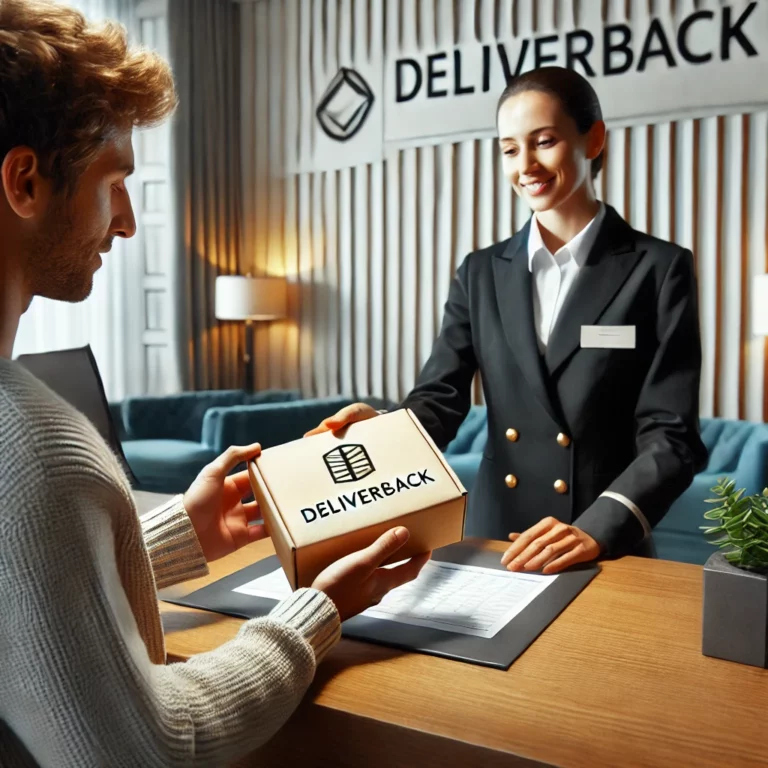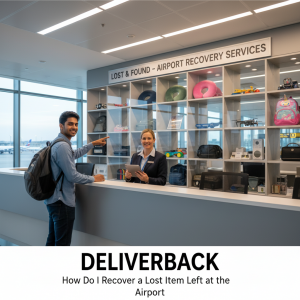In the hospitality industry, reputation is everything. One negative guest experience can snowball into a public relations nightmare, especially when that experience leads to a bad review. In today’s digital world, reviews hold an immense amount of power over consumer decisions. As more travelers turn to platforms like TripAdvisor, Google, and social media to decide where they will stay, the cost of a bad review for hotels has never been higher.
In this article, we’ll dive deep into what a bad review can cost hotels in terms of lost revenue, diminished reputation, and other hidden consequences. We’ll also discuss how services like Deliverback can save the day by offering an exceptional service to hotels, helping them turn potential bad reviews into positive guest experiences, all without additional costs.
The Financial Cost of a Bad Review
The most immediate and tangible effect of a bad review is the cost of lost bookings. Modern consumers are highly influenced by online reviews, with 88% of travelers trusting reviews as much as personal recommendations. A single negative review can deter potential guests from booking, and if negative feedback accumulates, the results can be devastating. Hotels may need to slash prices to remain competitive, and even then, they might struggle to fill rooms.
Lowering prices might help in the short term, but this strategy can also damage the hotel’s long-term brand positioning. High-end guests may look elsewhere, leaving the hotel reliant on budget-conscious travelers. The cost of a bad review can be felt in every room that remains empty or every booking that goes to a competitor.
Reputation Damage: The Long-Term Effects
Beyond the immediate loss of bookings, the cost of a bad review extends to long-term reputation damage. Your hotel’s reputation is often the deciding factor for guests, even beyond pricing. If a hotel becomes known for poor service, cleanliness issues, or a lack of attention to guest needs, it can take years to repair that image.
Consider the fact that 79% of travelers won’t book a hotel with more than three negative reviews. With this in mind, the ripple effect of a bad review can be significant. Once trust is lost, potential guests will look to alternative options, causing a continual decline in bookings and profit.
Even worse, bad reviews can impact relationships with travel partners, corporate clients, and other stakeholders. A hotel that gains a reputation for poor service might find it harder to secure partnerships with travel agencies, corporations looking for conference venues, or even local businesses offering referral deals.
Increased Marketing and Operational Costs
When bad reviews start to accumulate, hotels often feel compelled to invest heavily in reputation management. This could mean increasing their marketing and public relations budgets, creating campaigns to promote positive reviews, or paying for ads that mask or push down negative reviews.
Additionally, hotels may resort to hiring specialized reputation management services to mitigate the cost of a bad review. These services can be expensive, and while they can help manage the hotel’s online image, they don’t address the root of the problem: the negative guest experience.
Even if a hotel successfully manages to drown out negative reviews with marketing efforts, the financial burden of these tactics can be substantial. That money could otherwise be invested in improving guest experiences, staff training, or facility upgrades.
The Hidden Costs: Staff Morale and Turnover
The cost of a bad review isn’t just external. Internally, bad reviews can have a negative impact on staff morale. When employees constantly see negative feedback, especially regarding areas they are directly responsible for, it can lead to frustration and a sense of failure. Over time, this lowers morale, leading to higher staff turnover, which in turn increases operational costs.
Hotels invest heavily in training staff to ensure they deliver exceptional service. High turnover rates mean not only the financial cost of recruiting and training new employees but also the loss of institutional knowledge and experience that comes with losing long-term team members.
The Role of Deliverback in Mitigating Bad Reviews
Now that we’ve outlined the significant cost of a bad review, it’s crucial to discuss how hotels can prevent these negative experiences from happening in the first place. While some complaints may be unavoidable, especially in high-traffic seasons, there’s one area where hotels can shine: how they handle lost items.
Every hotelier knows that guests sometimes leave personal belongings behind—whether it’s a pair of sunglasses, a laptop, or even a favorite book. In the past, managing these forgotten items often resulted in time-consuming logistics and, in some cases, bad reviews if guests felt they weren’t helped adequately.
This is where Deliverback comes in to save the day. Deliverback is a service that helps reunite guests with their forgotten belongings, ensuring that a small mishap doesn’t escalate into a bad review. What’s more, Deliverback offers this service free of charge to the hotel, meaning there’s no additional cost to deliver a seamless and satisfying guest experience.
How does this work? When a guest realizes they’ve left something behind, instead of leaving them to navigate the often frustrating process of reclaiming their item, hotels can offer Deliverback as a solution. The platform makes it easy for guests to initiate the return of their items, turning what could have been a negative experience into a positive one. And since the service is fast, convenient, and free for the hotel, the guest feels cared for, which can result in them leaving a positive review instead.
For hotels, this service can dramatically reduce the cost of a bad review related to lost items, which can often stem from dissatisfaction over the handling of the situation. Instead of a guest leaving a one-star review because they didn’t get their forgotten jacket in time, they might leave a five-star review praising the hotel’s outstanding customer service.
Preventing Bad Reviews: Proactive Approaches for Hotels
While services like Deliverback can help turn a potential bad review into a positive one, hotels need a broader strategy to prevent negative feedback. Here are a few tactics hotels can implement to keep guests happy and avoid the cost of a bad review:
-
Respond Quickly to Feedback: A timely and professional response to any negative feedback can show that your hotel cares about its guests and is willing to make things right. Apologizing for any inconvenience and offering solutions can often dissuade a guest from posting a negative review.
-
Train Staff to Handle Complaints: Ensuring your team knows how to handle complaints with empathy and professionalism is key. Properly trained staff can de-escalate tense situations and often turn an unhappy guest into a satisfied one.
-
Regularly Monitor Online Reviews: Staying on top of your hotel’s online reviews is essential for managing your reputation. Proactively addressing concerns raised by guests can help prevent recurring issues.
-
Use Surveys to Identify Pain Points: Send out post-stay surveys to guests to gather feedback before they turn to public platforms. This allows you to address any concerns privately and avoid the cost of a bad review.
The Positive Impact of Turning Around a Negative Experience
One of the most overlooked benefits of resolving guest complaints efficiently is the potential for building brand loyalty. Guests who feel that their concerns were handled quickly and professionally are more likely to return in the future. Moreover, they might share their positive experience with others, leading to more bookings.
By preventing bad reviews or turning negative experiences into positive ones, hotels can significantly reduce the cost of a bad review. When guests feel heard and appreciated, they’re more likely to return and recommend your hotel to others.
Conclusion: The True Cost of a Bad Review and How to Avoid It
In today’s highly competitive market, the cost of a bad review can be enormous. From lost bookings to long-term reputation damage, bad reviews can have a lasting impact on a hotel’s financial health. However, by proactively addressing guest complaints and offering exceptional service, hotels can mitigate the effects of negative reviews.
Services like Deliverback offer a unique opportunity to save hotels from bad reviews related to forgotten items. By providing a seamless, free-of-charge service that reunites guests with their lost belongings, hotels can prevent bad reviews and even turn potentially negative experiences into positive ones.
Ultimately, hotels that prioritize guest satisfaction, respond to feedback, and leverage innovative services like Deliverback are best positioned to avoid the high cost of a bad review and maintain a stellar reputation in the competitive hospitality industry.


